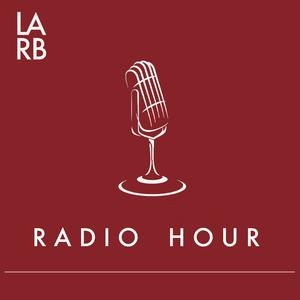
Smarty Pants
A podcast from The American Scholar magazine
- 28 minutes 41 secondsKeepers of the Old Ways
Pasta thin as thread, a mirror believed to show your true self, a history passed down for 27 generations of the same family—these may sound like elements of fairy tale, but they exist in our very own modern world. In his new book, Custodians of Wonder, BBC reporter Eliot Stein tells the stories of the people keeping traditions like these alive, across 10 countries and five continents, in an effort to save the cultures that shaped them. Far from being a litany of all the rites we’ve lost over the years, Stein’s book is a paean to human ingenuity in the face of evolving technology and culture, and to the creative spirit that continues to fuel the places that we call home.
Go beyond the episode:
- Eliot Stein’s Custodians of Wonder: Ancient Customs, Profound Traditions, and the Last People Keeping Them Alive
- Watch videos from Stein’s travels on the BBC’s “Custom Made”: the keeper of the 750-year old secret of soy sauce, Taiwan’s last film poster painter, Germany’s matchmaking tree, and, of course, Sardinia’s su filindeu
- Interested in learning a traditional craft? Check out our interview with Alexander Langlands about his book Craeft
Tune in every (other) week to catch interviews with the liveliest voices from literature, the arts, sciences, history, and public affairs; reports on cutting-edge works in progress; long-form narratives; and compelling excerpts from new books. Hosted by Stephanie Bastek and sponsored by the Phi Beta Kappa Society.
Subscribe: iTunes/Apple • Amazon • Google • Acast • Pandora • RSS Feed
Have suggestions for projects you’d like us to catch up on, or writers you want to hear from? Send us a note: podcast [at] theamericanscholar [dot] org. And rate us on iTunes!
Hosted on Acast. See acast.com/privacy for more information.
17 January 2025, 5:01 am - 28 minutes 37 secondsKinship and Contradictions
Identity can be difficult enough to navigate without bureaucratic interference. For Native people, the question of identity is mired in more than a century of federal intrusion in the form of tribal rolls, blood quantum, and boarding schools—not to mention genocide. And yet, the number of people who identify as Native has increased by 85 percent in just 10 years—from 5.2 million in 2010 to 9.7 million in 2020 according to the U.S. Census. But tribal enrollment, hovering at about two million, has not grown at the same rate. This phenomenon is just one of the things that Carrie Lowry Schuettpelz addresses in her new book, The Indian Card: Who Gets to Be Native in America. Her own story of enrollment in the Lumbee Tribe of North Carolina opens the door to many more stories that reveal how Native life still reverberates with the consequences of 19th-century federal policy.
Go beyond the episode:
- Carrie Lowry Schuettpelz’s The Indian Card: Who Gets to Be Native in America
- For more on citizenship in the Creek nation, listen to our interview with Caleb Gayle on the complicated history of Black enrollment
Tune in every (other) week to catch interviews with the liveliest voices from literature, the arts, sciences, history, and public affairs; reports on cutting-edge works in progress; long-form narratives; and compelling excerpts from new books. Hosted by Stephanie Bastek and sponsored by the Phi Beta Kappa Society.
Subscribe: iTunes/Apple • Amazon • Google • Acast • Pandora • RSS Feed
Have suggestions for projects you’d like us to catch up on, or writers you want to hear from? Send us a note: podcast [at] theamericanscholar [dot] org. And rate us on iTunes!
Hosted on Acast. See acast.com/privacy for more information.
13 December 2024, 5:01 am - 24 minutes 45 secondsOverconsumed
In his previous book, Junkyard Planet, journalist Adam Minter went around the world to see what happened to American recyclables such as cardboard, shredded cars, and Christmas lights around the world as they became new things. In Secondhand: Travels in the New Global Garage Sale, Minter looks at what happens to all the things that get resold and reused, objects that end up in Arizona thrift stores, Malaysian flea markets, Tokyo vintage shops, and Ghanaian used-electronics shops. Who’s buying the tons of goods that get downsized, decluttered, or discarded every year? Does the fact that we can just pass something off to a thrift shop justify our buying more things? What about the sheer scale of it all? Minter joins us in the studio to talk about how we filled the world with all this stuff, and what really needs to change for us to get out from under it—no matter where we live.
Go beyond the episode:
- Adam Minter’s Secondhand: Travels in the New Global Garage Sale
- Visit our episode page for further reading about fast fashion, the dark side of Goodwill, and the moral hazards of recycling
- Abandon your idols: Mari Kondo has begun selling you junk to replace the junk you just KonMari’d
- Read more about why local textile industries are dying in Ghana and African countries more broadly
- Learn more about the Right to Repair movement
Tune in every (other) week to catch interviews with the liveliest voices from literature, the arts, sciences, history, and public affairs; reports on cutting-edge works in progress; long-form narratives; and compelling excerpts from new books. Hosted by Stephanie Bastek and sponsored by the Phi Beta Kappa Society.
Subscribe: iTunes/Apple • Amazon • Google • Acast • Pandora • RSS Feed
Have suggestions for projects you’d like us to catch up on, or writers you want to hear from? Send us a note: podcast [at] theamericanscholar [dot] org. And rate us on iTunes!
Hosted on Acast. See acast.com/privacy for more information.
29 November 2024, 5:01 am - 25 minutes 3 secondsFiction, Fakery, and Factory Farming
It's the summer after graduation, and Munir and his friends G, Ernesto, and Álex leave Madrid for an idyllic summer picking grapes in the French countryside—because, as Munir writes in the sixth edict of his “decalogue of decalogues about experience as literary capital”: “What sets a novelist apart is having a unique worldview as well as something to say about it. So try living a little first. Not just in books or in bars, but out there, in real life. Wait until you've been scarred by the world, until it has left its mark.” But the scars end up a little deeper than Munir anticipated. There's no grape harvest—thanks to climate change—and the four friends end up working alongside the “etcetera of Europe” at a series of nightmarish factory farms where they do everything from injecting monstrous chickens with mysterious vaccines to artificially inseminating genetically modified corn. At least, that's the premise of Munir Hachemi's 2018 novel, Living Things, published earlier this year in an English translation by Julia Sanches. But how much of this tale is really fiction? And what’s the point of fiction in an inhumane world anyway? Hachemi joins us in the studio to talk about storytelling, machismo, and going vegan.
Go beyond the episode:
- Living Things by Munir Hachemi
- Some of Hachemi’s inspirations include Artificial Respiration by Ricardo Piglia, Tomás Downey, María Sonia Cristoff, Pablo Katchadjian, Emiliano Monge, and, of course, Borges
Tune in every (other) week to catch interviews with the liveliest voices from literature, the arts, sciences, history, and public affairs; reports on cutting-edge works in progress; long-form narratives; and compelling excerpts from new books. Hosted by Stephanie Bastek and sponsored by the Phi Beta Kappa Society.
Subscribe: iTunes/Apple • Amazon • Google • Acast • Pandora • RSS Feed
Have suggestions for projects you’d like us to catch up on, or writers you want to hear from? Send us a note: podcast [at] theamericanscholar [dot] org. And rate us on iTunes!
Hosted on Acast. See acast.com/privacy for more information.
15 November 2024, 5:01 am - 29 minutes 16 secondsAmerican Horror Story
Americans can’t look away from horror stories, whether it’s slasher films on the big screen, true crime on the TV screen, or viral videos on the small screens of our phones. And in a lot of ways, as the historian Jeremy Dauber argues, American history is one horror story after another—from the terror the Puritans felt and wrought in the dark of New England, through the atrocities of Native American genocide and enslavement, down to modern fears of nuclear war. Dauber’s new book, American Scary: A History of Horror, from Salem to Stephen King and Beyond, plumbs the depths of the nation’s past to draw unexpected parallels between contemporary terrors and older ones, whether Frankenstein’s connection to Black history or Charlotte Perkins Gilman’s veiled xenophobia. Dauber, a professor of Jewish literature and American studies at Columbia University, joins the podcast to talk about old standbys, forgotten gems, and new classics of the horror genre.
Go beyond the episode:
- Jeremy Dauber’s American Scary: A History of Horror, from Salem to Stephen King and Beyond
- Read Charles W. Chestnutt’s story about a white master’s worst fear, “Mars Jeems’s Nightmare,” from the collection The Conjure Woman (1899)
- Watch The Night of the Hunter (1955), Charles Laughton’s only feature and arguably the most American horror film
- Read Alice Sheldon’s story “The Screwfly Solution,” first published under the pseudonym Raccoona Sheldon in 1977
- You know we love horror—visit our website for a list of our spookiest episodes
Subscribe: iTunes/Apple • Amazon • Google • Acast • Pandora • RSS Feed
Have suggestions for projects you’d like us to catch up on, or writers you want to hear from? Send us a note: podcast [at] theamericanscholar [dot] org. And rate us on iTunes!
Hosted on Acast. See acast.com/privacy for more information.
31 October 2024, 4:01 am - 41 minutes 20 secondsThe Writing on the Wall
Henry David Thoreau is known for Walden Pond, his writings on solitude and nature, and his staunch, even strident, abolitionism. He is not known for his pencils. But it’s his pencils, writes the historian Augustine Sedgewick in our Autumn issue, that have been overlooked by scholars for so many years, along with one particularly damning detail that Sedgewick discovered for the first time: the cedar in those pencils, which the Thoreau family manufactured to great success, was logged by enslaved laborers. That a connection to slavery was “discovered” in the unlikeliest of places—on the desk of an iconic American abolitionist—speaks to how limiting this idea of discovery is. Connections to slavery in 19th-century America, after all, were everywhere and rarely hidden. Sedgewick's essay has already been making waves in Thoreauvian circles, and it has the real potential to change the narrative not only about Thoreau, but also about how we talk about racial justice and reparations in this country.
Go beyond the episode:
- Augustine Sedgewick’s essay “Thoreau’s Pencils”
- Henry David Thoreau’s “Civil Disobedience”
- Ralph Waldo Emerson’s “Self-Reliance”
Tune in every (other) week to catch interviews with the liveliest voices from literature, the arts, sciences, history, and public affairs; reports on cutting-edge works in progress; long-form narratives; and compelling excerpts from new books. Hosted by Stephanie Bastek and sponsored by the Phi Beta Kappa Society.
Subscribe: iTunes/Apple • Amazon • Google • Acast • Pandora • RSS Feed
Have suggestions for projects you’d like us to catch up on, or writers you want to hear from? Send us a note: podcast [at] theamericanscholar [dot] org. And rate us on iTunes!
Hosted on Acast. See acast.com/privacy for more information.
18 October 2024, 4:01 am - 25 minutes 47 secondsThis Woman’s Work
In 1748, Lord Chesterfield told his son not to expect much from women: they “are only children of a larger growth; they have an entertaining tattle, and sometimes wit; but for solid, reasoning good sense, I never knew in my life one who had it, or who reasoned and acted consequentially for four-and-twenty hours together.” In 1739, an anonymous pamphleteer laid out the case for Man Superior to Woman; or, a Vindication of Man’s Natural Right of Sovereign Authority over the Woman, writing that even if a woman was educated, “if this Lady is a scholar she is a very sluttish one; and the much she reads is to very little Purpose.” This was the terrain, writes the Irish historian Susannah Gibson in her new book, The Bluestockings, in which Elizabeth Montagu dared to host weekly salons about the intellectual debates of the moment—among the hottest of which was whether or not women should even be engaging in such discussions in the company of men. At Montagu’s table, Samuel Johnson rubbed elbows with the likes of the classicist Elizabeth Carter, the historian Catharine Macauley, and the novelist Frances Burney. Gibson’s new book paints a group portrait of these varied women, the polite challenge they posed to the patriarchy, and the forces that would eventually lead to the unraveling of their power.
Go beyond the episode:
- Susannah Gibson’s The Bluestockings: A History of the First Women’s Movement
- We have too many links to the Bluestockings’ own books, so visit our episode page for the full list!
Tune in every (other) week to catch interviews with the liveliest voices from literature, the arts, sciences, history, and public affairs; reports on cutting-edge works in progress; long-form narratives; and compelling excerpts from new books. Hosted by Stephanie Bastek and sponsored by the Phi Beta Kappa Society.
Subscribe: iTunes/Apple • Amazon • Google • Acast • Pandora • RSS Feed
Have suggestions for projects you’d like us to catch up on, or writers you want to hear from? Send us a note: podcast [at] theamericanscholar [dot] org. And rate us on iTunes!
Hosted on Acast. See acast.com/privacy for more information.
4 October 2024, 4:01 am - 29 minutes 12 secondsQueen of the Night
We’re often reminded of the splendors of the night sky—lunar eclipses, blood moons, meteors, stars—but what of the nighttime splendors of the earth? In her Autumn 2024 cover story for The American Scholar, nature writer Leigh Ann Henion keeps her eyes closer to the ground, on the night-blooming tobacco at a North Carolina farm. As these white flowers slowly unfurl, their blossoms attract nocturnal hawk moths so large that they are often mistaken for hummingbirds. But jasmine tobacco isn’t the only attraction of the dark: in her new book, Night Magic, Henion witnesses the electric squirming of glowworms, the dance of fireflies, and the phosphorescence of foxfire. Henion, who begins her exploration just outside her front door in Boone, North Carolina, soon devotes her evenings to Appalachian adventures further afield—bats in Alabama, a moth festival in Ohio, lightning bugs in Tennessee—but returns to the wonders lurking in her back yard.
Go beyond the episode:
- Read Leigh Ann Henion’s cover story for us, “Moondance,” adapted from her new book, Night Magic: Adventures Among Glowworms, Moon Gardens, and Other Marvels of the Dark
- Explore Foxfire Books, a series of anthologies about Appalachian culture (and cookery!)
- DarkSky International works to protect the night around the world
- Keep an eye out for these annual nighttime events: Mothapalooza, Grandfather Glows, Glowworms in the Dismalites
Tune in every (other) week to catch interviews with the liveliest voices from literature, the arts, sciences, history, and public affairs; reports on cutting-edge works in progress; long-form narratives; and compelling excerpts from new books. Hosted by Stephanie Bastek and sponsored by the Phi Beta Kappa Society.
Subscribe: iTunes/Apple • Amazon • Google • Acast • Pandora • RSS Feed
Have suggestions for projects you’d like us to catch up on, or writers you want to hear from? Send us a note: podcast [at] theamericanscholar [dot] org. And rate us on iTunes!
Hosted on Acast. See acast.com/privacy for more information.
20 September 2024, 4:01 am - 27 minutes 17 secondsA Toothsome Tale
A tooth is not simply a tooth, as zoologist Bill Schutt writes in his new book, Bite: An Incisive History of Teeth, from Hagfish to Humans. Teeth first showed up among vertebrates some 500 million years ago, and ever since, they’ve had much to do with the survival of many species. There are teeth that sharpen themselves with every snap (as with dogs and wolves), teeth that grow forever (as the poor babirusa knows all too well), and teeth that grow in a conveyer belt (ask a crocodile, but don’t get too close). The shape and appearance of teeth can tell us a lot about how animals evolved—and in the case of humans, where we stand on the social ladder. And there’s much more still to be learned, both about past life on this planet and future innovations in dentistry. Bill Schutt, a vertebrate zoologist and retired biology preofssor, is a research associate at the American Museum of Natural history, and he joins us today from New York.
Go beyond the episode:
- Bill Schutt’s Bite: An Incisive History of Teeth, from Hagfish to Humans
- Visit our episode page to see some of Patricia J. Wynne's original illustrations for the book
Tune in every (other) week to catch interviews with the liveliest voices from literature, the arts, sciences, history, and public affairs; reports on cutting-edge works in progress; long-form narratives; and compelling excerpts from new books. Hosted by Stephanie Bastek and sponsored by the Phi Beta Kappa Society.
Subscribe: iTunes/Apple • Amazon • Google • Acast • Pandora • RSS Feed
Have suggestions for projects you’d like us to catch up on, or writers you want to hear from? Send us a note: podcast [at] theamericanscholar [dot] org. And rate us on iTunes!
Hosted on Acast. See acast.com/privacy for more information.
6 September 2024, 6:01 am - 42 minutes 15 secondsA Rebel to Remember
On August 22 1831, Nat Turner led a group of enslaved people in a rebellion that resulted in the deaths of more than a hundred people, Black and white, in Virginia’s Southampton County, near the border with North Carolina. Though the conflict only lasted a few days, Nat himself evaded capture for two months, until he surrendered on October 30. Before his execution on November 11, he spoke at length about his thoughts and deeds, which were written down by the lawyer Thomas Gray as The Confessions of Nat Turner. In a new book, the late historian Anthony E. Kaye and his collaborator Gregory P. Downs make the case that the religious dimension of Nat’s uprising has been underplayed or overlooked in popular accounts of his work—despite the prevalence of divine vision both in the Confessions and in prior rebellions. Nat Turner, Black Prophet aims to tell the full story of this “uniquely troublesome historical figure, too dangerous for some, too strange for others.”
Go beyond the episode:
- Nat Turner, Black Prophet: A Visionary History by Anthony E. Kaye with Gregory P. Downs
- Nat’s bible is on view at the National Museum of African American History and Culture
- For more on how the place of religion has changed in modern society—and how religious men like Nat saw themselves in theirs—see Charles Taylor, A Secular Age
- Historians increasingly write about the Civil War as the largest (and most successful) slave rebellion in history—but W. E. B. DuBois said it first
Tune in every (other) week to catch interviews with the liveliest voices from literature, the arts, sciences, history, and public affairs; reports on cutting-edge works in progress; long-form narratives; and compelling excerpts from new books. Hosted by Stephanie Bastek and sponsored by the Phi Beta Kappa Society.
Subscribe: iTunes/Apple • Amazon • Google • Acast • Pandora • RSS Feed
Have suggestions for projects you’d like us to catch up on, or writers you want to hear from? Send us a note: podcast [at] theamericanscholar [dot] org. And rate us on iTunes!
Hosted on Acast. See acast.com/privacy for more information.
23 August 2024, 4:01 am - 34 minutes 1 secondGoing for Gold
At this year’s Olympics, the men’s gymnastics team made it onto the podium for the first time since 2008, winning bronze thanks to stunning overall performances and a perfect routine from Stephen Nederoscik, the Pommel Horse Guy. Team USA’s stars have, for many years now, been on the women’s team, with Simone Biles the most decorated American gymnast in history. But there’s one record Biles hasn’t beaten yet: the six medals that George Eyser won on a single day in October 1904—which he managed to do on one leg. How this incredible athlete accomplished his feat—and how much else has been forgotten about him besides his disability—is the subject of Joshua Prager’s Summer cover story for The American Scholar, “A Forgotten Turner Classic.” Prager, himself disabled, traces what little we know about George Eyser, from his troubled childhood in Germany to his new home in Denver, Colorado, from his incredible 1904 wins to his devastating 1919 suicide.
Go beyond the episode:
- Read Joshua Prager’s cover story, “A Forgotten Turner Classic”
- Meet the Team USA’s 2024 bronze winners
Tune in every (other) week to catch interviews with the liveliest voices from literature, the arts, sciences, history, and public affairs; reports on cutting-edge works in progress; long-form narratives; and compelling excerpts from new books. Hosted by Stephanie Bastek and sponsored by the Phi Beta Kappa Society.
Subscribe: iTunes/Apple • Amazon • Google • Acast • Pandora • RSS Feed
Have suggestions for projects you’d like us to catch up on, or writers you want to hear from? Send us a note: podcast [at] theamericanscholar [dot] org. And rate us on iTunes!
Hosted on Acast. See acast.com/privacy for more information.
9 August 2024, 4:01 am - More Episodes? Get the App
Your feedback is valuable to us. Should you encounter any bugs, glitches, lack of functionality or other problems, please email us on [email protected] or join Moon.FM Telegram Group where you can talk directly to the dev team who are happy to answer any queries.
 The World in Time / Lapham’s Quarterly
The World in Time / Lapham’s Quarterly
 The Harper’s Podcast
The Harper’s Podcast
 Soundings from The New York Review
Soundings from The New York Review
 LA Review of Books
LA Review of Books
 The Archive Project
The Archive Project
 LARB Radio Hour
LARB Radio Hour